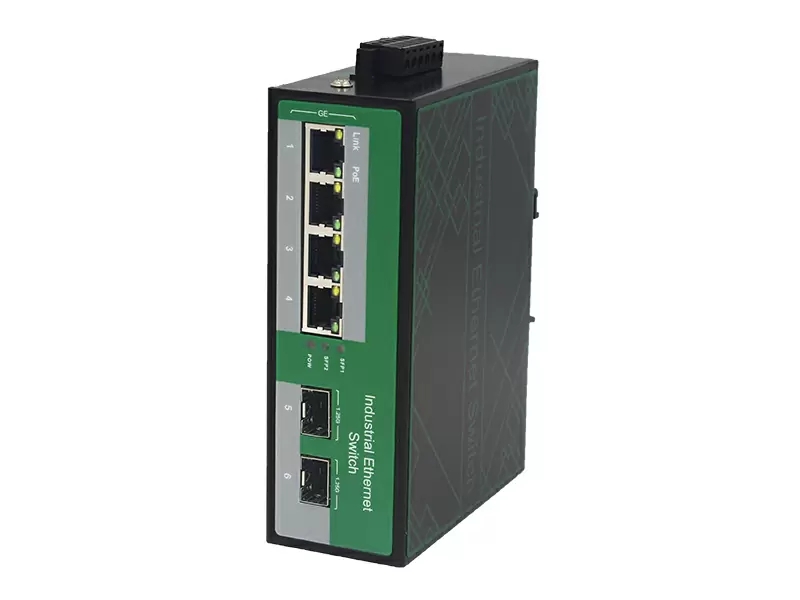.

An industrial switch is a vital component in an industrial network infrastructure. It enables efficient communication and management of data flow between various devices, such as computers, servers, programmable logic controllers (PLCs), and other networked devices. In this article, we will explore the functionalities, types, and significance of industrial switches.
1. Functions of an Industrial Switch:
An industrial switch serves as the central point for data exchange within an industrial network. It provides the following essential functions:
1.1. Traffic Management: An industrial switch efficiently controls and manages the flow of data packets within the network. It ensures that each packet is sent to the correct destination device without congestion or data loss.
1.2. Network Segmentation: By dividing a network into multiple segments, industrial switches enhance network performance, security, and reliability. Segmentation allows isolation of faulty devices, reduces network collisions, and prevents unnecessary broadcast traffic.
1.3. Quality of Service (QoS) Control: Industrial switches prioritize certain types of network traffic to ensure critical data, such as real-time control signals or video surveillance footage, is transmitted without interruption or delay.
2. Types of Industrial Switches:
There are several types of industrial switches, each designed to meet specific network requirements. The commonly used types include:
2.1. Managed Switches: These switches offer advanced configuration options, remote management capabilities, and network monitoring features. They provide greater control over network operations, security, and performance optimization.
2.2. Unmanaged Switches: Unmanaged switches are plug-and-play devices without extensive configuration options. They are straightforward to use, making them ideal for small-scale industrial networks with basic requirements.
2.3. PoE Switches: Power over Ethernet (PoE) switches not only transmit data but also provide power to network devices. This eliminates the need for separate power cables, simplifying installation and maintenance processes.
3. Significance of Industrial Switches:
Industrial switches play a crucial role in the seamless operation of industrial networks. Some key reasons why they are significant are:
3.1. Enhanced Network Reliability: By offering redundant links and advanced network management features, industrial switches improve network reliability and minimize downtime. Failures can be quickly detected and resolved, ensuring uninterrupted data flow.
3.2. Improved Network Security: Industrial switches provide features like VLAN (Virtual Local Area Network), access control, and port security to protect against unauthorized access and potential threats, enhancing overall network security.
3.3. Scalability and Future-Proofing: Industrial switches are designed to support the increasing demands of evolving networks. They offer expansion slots, high port densities, and advanced protocols to accommodate the growth and changing technology requirements of industrial environments.
4. Conclusion:
Industrial switches are essential components in industrial network architectures. They facilitate efficient data flow, network segmentation, and improved network performance and security. With different types available, it is crucial to select the appropriate industrial switch based on specific network requirements and future scalability plans. Implementing reliable and robust industrial switches ensures the smooth operation and productivity of industrial networks.


